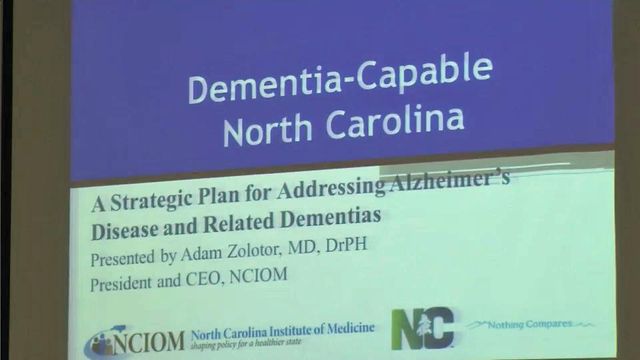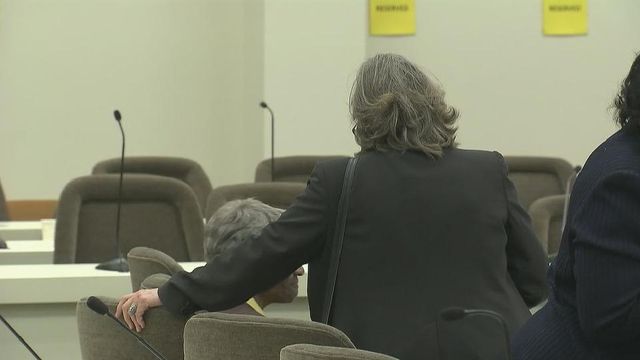Advocates, lawmakers discuss personal price of dementia
The wife of legendary University of North Carolina basketball coach Dean Smith was among those who briefed state lawmakers Tuesday on the need to plan for and fund care for a growing number of people with dementia.
Smith, who died a little more than a year ago, suffered from memory issues for the final eight years of his life, his wife, Dr. Linnea Smith, said.
"I now know that it doesn't matter how successful an individual is, how well-known he is or how remarkable his memory is, that doesn't make one exempt from developing a neurocognitive disorder," she said.
Smith is a member of a state task force considering how the state should care for the 270,000 people expected to be diagnosed with dementia by 2030 and the thousands of professionals and loved ones who participate in their care.
“When my husband was sick, I had so much difficulty finding help and the right kind of help," she said. "We had physicians that went well beyond a normal practice, and I was still hanging onto a cliff by my fingernails."
Smith was joined on Tuesday by Nacy Washington, who cared for her mother through 14 years of Alzheimer's, medical experts from Duke and North Carolina A&T State universities and the North Carolina Institute of Medicine and a representative of the AARP.
"Not a lot of people know what caregivers go through," Washington said. "As far as trying to juggle your home and their home and work, it's almost a 24/7 job."
The Alzheimer’s Association estimates that North Carolina caregivers like Smith provided $6.2 billion in unpaid care to loved ones with dementia in 2014.
The task force recommended a boost in state funding for caregiver support, more money for the state's 211 system – a 24/7 call center to help people find the services and resources they need – and a plan for enhancing employee leave policies for caregivers.
"The recommendations from this report will go a long way towards helping organize the available resources so that caregivers can find them," Smith said. "A resource toolkit, a single point of entry and specialized care management to help families navigate and plan will all ease the burden on families.”
Dr. Adam Zolotor, president and CEO of the North Carolina Institute of Medicine, said investing in care and support can go a long way to keeping people out of nursing homes.
"The recommendations in this report call for incremental investments in respite care, home and community services and Medicaid waiver programs that will support caregivers, delay institutionalization and decrease state Medicaid costs over time,” he said.
While 42 other states have developed a plan specific to Alzheimer's and dementia care, North Carolina has only just begun the process. Zolotor said North Carolina can benefit from the experience of those states to apply some best practices.











